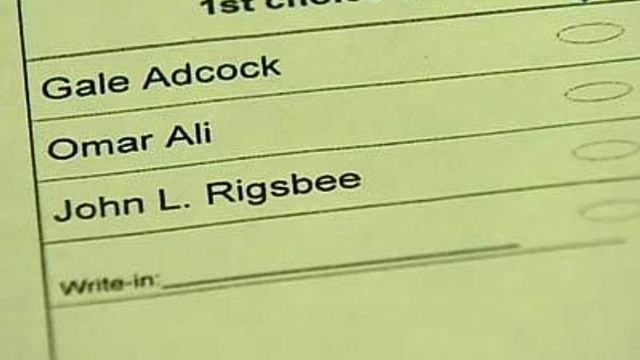Cary Voters Split on Instant-Runoff Elections
Votes were still being cast Thursday in the municipal election Cary held last October – not for candidates, but as part of the debate over the instant-runoff system used.
Posted — UpdatedWake County officials wanted to gauge reactions to the system, which Cary piloted last fall, before deciding whether to use instant runoffs in future elections.
The system eliminates costly second elections when runoffs are needed by having voters mark their first, second and third choices in various races.
Only the first-choice votes are tallied election night, but if no candidate gets a majority, an instant runoff is triggered between the top vote getters. Election officials look at second choices on ballots cast for candidates already out of the race and add those numbers to the top vote getters to determine a winner.
"This is a great idea. Why didn't we do this before?" instant runoff supporter Carol Everette said.
"It is a bad idea and is very confusing to some of the voters," said Eugene Weeks, who opposes the system.
Don Frantz, an automotive shop owner, won a seat on the Cary Town Council seat in October based on an instant runoff. Elections officials said Cary saved almost $30,000 by not holding a separate runoff election.
"It does, in some aspects, increase voter participation and voter turnout," Frantz said, adding that he doesn't like the mechanics of the instant-runoff system because there are no computers able to count the second and third choices.
"Trying to hand count ballots, there is just a lot of room for error," he said.
Wake County officials will take the public comments to state elections officials, who will decide if the instant-runoff system will be scrapped or expanded.
• Credits
Copyright 2024 by Capitol Broadcasting Company. All rights reserved. This material may not be published, broadcast, rewritten or redistributed.





